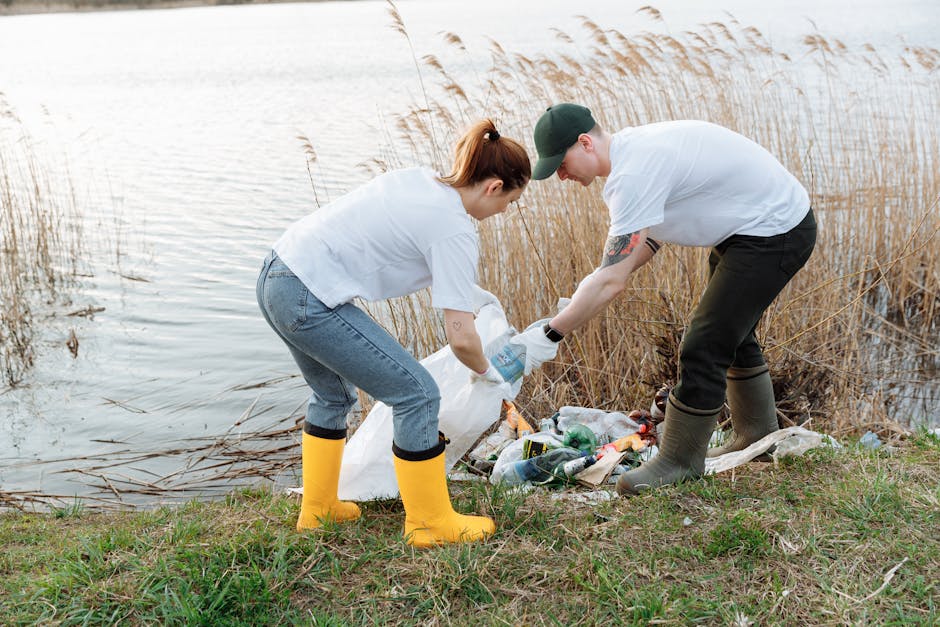Ecosystem Support: A Comprehensive Guide to Startup Competitions, Incubators and Accelerators in South Africa
‘I didn’t know that existed!’
That’s the phrase I hear most often when talking to South African entrepreneurs about the support resources available to them.
The truth is, South Africa’s startup ecosystem has evolved dramatically over the past decade. What was once a barren landscape for entrepreneurs now features a rich tapestry of competitions, incubators, accelerators, and support programs—most of which offer their services at low or no cost.
The problem? Many entrepreneurs don’t know what’s available, which programs are right for their specific stage, or how to access these resources.
Consider this your comprehensive field guide to navigating South Africa’s startup support ecosystem—helping you find exactly the right resources for your entrepreneurial journey.
Why External Support Matters for South African Startups

First, let’s address the ‘why.’ Is external support actually necessary, or just a nice-to-have?
Research from the University of Cape Town’s Graduate School of Business found that startups participating in structured support programs are:
- 3.2x more likely to secure funding
- 2.5x more likely to survive past 3 years
- 4.7x more likely to create jobs beyond the founder
The evidence is clear: tapping into ecosystem support significantly improves your odds of success. Let’s explore your options.
Startup Competitions: Funding, Validation and Exposure

Competitions offer perhaps the most accessible entry point to the ecosystem. They typically require minimal commitment while offering significant potential benefits.
Types of Competitions in South Africa
| Competition Type | What They Offer | Best For |
|---|---|---|
| Pitch Competitions | Prize money, investor exposure, feedback | Startups with clear proposition and presentation |
| Business Plan Competitions | Larger funding, structured feedback | Early ideas needing validation and refinement |
| Hackathons | Technical development, team formation | Product-focused startups, technical founders |
| Industry-Specific Challenges | Corporate partnerships, pilot opportunities | Startups targeting specific sectors |
| Technical Development Competitions | Free development, technical resources | Non-technical founders needing MVP development |
Spotlight: Next Disruptor Competition
For non-technical founders, the Next Disruptor competition offers a unique proposition: 10 weeks of free app/software/SaaS development in exchange for a small equity stake.
‘Without technical skills or the R350,000 needed to hire developers, my business idea would have remained just that—an idea,’ explains previous winner Thando M. ‘Through Next Disruptor, we built and launched our MVP within three months, secured our first paying customers, and are now raising our seed round.’
The quarterly competition specifically addresses the technical development hurdle that prevents many promising South African startups from launching.
Key South African Startup Competitions
Several competitions have established strong track records for launching successful companies:
-
SA Innovation Summit Competitions
- Annual event with multiple competition tracks
- Prizes range from R50,000 to R1 million
- Strong focus on investor matching
-
FNB Business Innovation Awards
- Significant cash prizes and international exposure
- Focused on established startups showing innovation
- Past winners have secured major funding rounds
-
Standard Bank/Google Startup Accelerator Challenge
- Combines competition with accelerator support
- Technical resources, mentorship, and potential investment
- Strong focus on fintech and digital solutions
-
SEDA Business Technology Incubation Programme
- Government-backed competitions for different sectors
- Combines funding with follow-on support
- Special focus on previously disadvantaged entrepreneurs
-
The Hooks Competition
- Sector-agnostic pitch competition
- Strong media exposure component
- Connects winners directly with investor networks
For successful competition participation, read our guide on how to craft the perfect startup pitch deck and win over investors.
Incubators: Building Foundations for New Ventures

While competitions offer one-time benefits, incubators provide longer-term structured support for early-stage ventures.
What South African Incubators Typically Offer:
- Physical workspace: Shared offices reducing overhead costs
- Basic business services: Administration, legal, accounting support
- Skills development: Targeted training on business fundamentals
- Mentorship: Access to experienced business advisors
- Community: Peer support from fellow entrepreneurs
- Limited funding: Small grants or stipends in some programs
Who Should Consider Incubators:
Incubators are particularly valuable for:
- First-time entrepreneurs needing fundamental business skills
- Ideas in pre-MVP or early MVP stage
- Founders requiring structured guidance and accountability
- Businesses needing operational support and infrastructure
- Entrepreneurs seeking community and peer learning
‘The incubator didn’t just help us refine our business model,’ explains Johannesburg-based founder Nomsa K. ‘It provided the structure and accountability I needed as a first-time entrepreneur. Those frameworks still guide our business three years later.’
Top South African Incubator Programs:
-
22 on Sloane (Johannesburg)
- Africa’s largest startup campus
- Sector-agnostic with strong corporate connections
- Comprehensive support from ideation to market entry
-
Bandwidth Barn (Cape Town)
- Technology-focused incubator
- Strong technical infrastructure
- Over 20 years of successful operation
-
The Innovation Hub (Pretoria)
- Government-supported incubator with sector-specific programs
- Strong science and technology focus
- Access to significant research and development resources
-
Durban Innovation Hub
- Focus on socially responsible entrepreneurship
- Strong connection to regional development priorities
- Combination of physical and virtual support
-
Tshimologong Digital Innovation Precinct (Johannesburg)
- Digital and content creation focus
- University-backed with academic resources
- Strong skills development component
For a comprehensive list of options, see our detailed Ultimate Guide to Startup Accelerators and Incubators in South Africa.
Accelerators: Scaling Proven Concepts

While incubators focus on early formation, accelerators help established startups accelerate their growth through intensive, time-limited programs.
What Accelerators Offer South African Startups:
- Intensive programming: Structured curriculum over 3-6 months
- Significant mentorship: Access to industry experts and successful founders
- Investor connections: Deliberate exposure to funding networks
- Potential investment: Many accelerators provide funding in exchange for equity
- Growth resources: Tools and support specifically for scaling
- Cohort experience: Learning alongside other growth-stage ventures
Who Should Apply to Accelerators:
Accelerators are most appropriate for:
- Startups with existing MVP and some market traction
- Ventures ready to scale operations significantly
- Founders seeking connections to investment networks
- Businesses with clear growth metrics and goals
- Teams open to intensive mentorship and feedback
‘Our accelerator experience compressed about three years of learning into three months,’ shares Cape Town fintech founder Lesedi M. ‘The mentor network alone was worth the equity we gave up.’
Leading Accelerator Programs in South Africa:
-
Grindstone Accelerator
- Proven track record with multiple successful exits
- Equity-based model with strong investor connections
- Intense focus on growth metrics and operational excellence
-
Startupbootcamp AfriTech
- Part of global accelerator network
- Strong corporate partnerships for pilot opportunities
- Focus on African solutions with global relevance
-
AlphaCode Incubate and Accelerate
- Fintech specialization with direct funding component
- backed by Rand Merchant Investment Holdings
- Strong emphasis on regulatory navigation and compliance
-
Google for Startups Accelerator Africa
- Technical resources and global network access
- Specific focus on leveraging Google technologies
- Non-equity program with strong brand association
-
Founders Factory Africa
- Venture builder and accelerator model
- Direct equity investment component
- Strategic corporate partnerships for distribution
Choosing Between Programs
When evaluating accelerators and incubators, consider these factors:
- Equity requirements: Some programs take ownership percentages
- Industry focus: Many programs specialize in specific sectors
- Stage appropriateness: Ensure alignment with your current phase
- Resource offering: Match program resources to your specific needs
- Alumni success: Research outcomes of previous participants
- Geographic location: Consider practical participation requirements
- Mentor network: Evaluate the relevance of available advisors
‘We wasted six months in the wrong accelerator,’ admits Durban-based founder Sipho N. ‘Their focus was helping early-stage startups find product-market fit, but we needed distribution partnerships and growth capital. Research before applying is crucial.’
Corporate Innovation Programs: The Corporate Connection

A growing segment of South Africa’s ecosystem is corporate-backed startup programs, offering unique benefits beyond traditional incubators and accelerators.
What Corporate Programs Offer:
- Market access: Distribution through established channels
- Customer acquisition: Access to corporate client base
- Technical resources: Enterprise-grade infrastructure and tools
- Industry expertise: Deep sector-specific knowledge
- Potential investment: Corporate venture capital opportunities
- Credibility: Association with established brands
‘Partnering with a major bank through their innovation program gave us instant credibility,’ explains fintech founder Thabo K. ‘What would have taken years to build in trust happened almost overnight through their endorsement.’
Notable Corporate Innovation Programs:
-
Standard Bank Enterprise Development
- Focus on fintech and adjacent sectors
- Combines funding with market access
- Strong emphasis on regulatory compliance
-
MTN Solution Space
- Telecommunications and mobile innovation focus
- Access to significant technical infrastructure
- Potential for rapid customer scaling
-
Naspers Foundry
- Major funding potential (R1.4 billion fund)
- Strong focus on technology-driven ventures
- Global expansion opportunities
-
Distell Venture Capital
- Consumer goods innovation focus
- Market testing and distribution support
- Strong FMCG industry expertise
-
Discovery Health Incubator
- Healthcare innovation specialization
- Regulatory navigation support
- Access to significant data resources
University-Based Startup Support

South African universities have developed increasingly sophisticated entrepreneurship programs, offering unique resources particularly valuable for research-intensive startups.
University Resources for Entrepreneurs:
- Technical expertise: Faculty advisors and specialized knowledge
- Research facilities: Labs and testing resources
- Student talent: Access to skilled students for projects
- Academic credibility: Valuable for research-based startups
- Intellectual property support: Patent and commercialization assistance
- Alumni networks: Connections to established professionals
Leading University Entrepreneurship Centers:
-
UCT Solution Space (University of Cape Town)
- Strong business school integration
- Diverse sectoral focus
- Powerful alumni network
-
Wits Commercial Enterprise (University of Witwatersrand)
- Commercialization focus for academic research
- Strong scientific and technical resources
- Intellectual property expertise
-
InnovUS (Stellenbosch University)
- Focus on commercializing research
- Strong agritech and wine industry connections
- Substantial technology transfer experience
-
UKZN InQubate (University of KwaZulu-Natal)
- Regional development focus
- Cross-disciplinary innovation support
- Strong connections to Eastern Seaboard development initiatives
Government Support Programs

While sometimes overlooked due to bureaucratic processes, government programs offer significant support for South African entrepreneurs.
Key Government Resources:
-
Small Enterprise Development Agency (SEDA)
- Nationwide branch network
- Comprehensive startup support services
- Access to multiple funding instruments
-
Technology Innovation Agency (TIA)
- Focus on science and technology commercialization
- Seed funding grants up to R500,000
- Technical development support
-
Industrial Development Corporation (IDC)
- Larger funding for manufacturing and industrial ventures
- Business support alongside capital
- Strategic sector focus aligned with national priorities
-
National Youth Development Agency (NYDA)
- Youth entrepreneur focus (18-35)
- Combination of grants and soft loans
- Comprehensive skills development
-
Companies and Intellectual Property Commission (CIPC)
- Business registration and compliance support
- IP protection resources
- Reduced fees for small enterprises
Sector-Specific Ecosystem Support

Certain industries have developed specialized support ecosystems particularly relevant to South African entrepreneurs:
Fintech
South Africa’s most developed startup sector features:
- Regulatory sandboxes: Safe spaces to test financial innovations
- Banking partnerships: Direct relationships with financial institutions
- Specialized accelerators: Programs focused on financial compliance
- Industry associations: Networks specifically for fintech entrepreneurs
Leading programs include AlphaCode (Rand Merchant Investments), the FSCA Innovation Hub, and the Interbank Fintech Working Group.
Agritech
With agriculture being crucial to South Africa’s economy:
- Farm testing facilities: Places to pilot agricultural technologies
- Rural development grants: Funding for innovations serving farmers
- Commodity organization support: Industry-specific guidance
- Land and equipment access: Resources for practical testing
Key resources include the SA Agri Innovation Hub, TIA’s Agriculture Bioeconomy Innovation Partnership Programme, and the Western Cape Department of Agriculture’s Innovative Agri Programme.
Healthcare
South Africa’s healthcare innovation ecosystem includes:
- Clinical trial support: Assistance navigating medical testing
- Regulatory guidance: Help with SAHPRA approval processes
- Patient access programs: Pathways to test with real users
- Medical research partnerships: Connections to healthcare institutions
Notable programs include the SAMRC Innovation Centre, Founders Factory Africa Health Venture Scale, and Discovery Health’s Innovation initiatives.
Navigating the Ecosystem: A Stage-Based Approach

Rather than applying randomly to available programs, smart entrepreneurs align ecosystem support with their specific stage:
Idea Stage
Focus on:
- Idea-stage competitions for validation
- University entrepreneurship centers
- Community startup meetups
- Basic skills development programs
- Hackathons and innovation challenges
‘Before investing a cent in development, we validated our concept through three different startup competitions,’ shares Cape Town entrepreneur Zinhle N. ‘The feedback shaped our entire approach, saving us from pursuing flawed assumptions.’
MVP Development Stage
Seek out:
- Technical development support like Next Disruptor
- Early-stage incubators
- Prototype funding grants
- Co-working spaces with mentor networks
- Founder skills development programs
For guidance on this critical phase, see our detailed guide on how to build an MVP on a budget.
Early Traction Stage
Prioritize:
- Accelerator programs with distribution focus
- Angel investor networks
- Customer acquisition partnerships
- Growth marketing resources
- Specialized operational support
Scaling Stage
Focus on:
- Growth-focused accelerators
- Corporate partnership programs
- Expansion capital sources
- Executive talent networks
- International market access initiatives
How to Maximize Value from Ecosystem Support

Having helped numerous startups navigate these programs, I’ve observed clear patterns among those who extract maximum value:
1. Do Your Homework
Before applying to any program:
- Speak with at least 3 alumni about their experience
- Understand the program’s specific value proposition
- Be clear about what you’re giving up (time, equity, etc.)
- Align program offerings with your specific needs
- Research the backgrounds of mentors and facilitators
‘I interviewed five previous participants before applying to our accelerator,’ explains successful founder Mandla N. ‘Their insights helped me prepare specifically for the program’s approach, allowing us to extract maximum value from day one.’
2. Be Selective and Strategic
More support isn’t always better:
- Focus on quality over quantity of programs
- Avoid overlapping commitments that dilute focus
- Build a strategic support journey across different programs
- Consider the opportunity cost of program participation
- Evaluate alignment with your business model and values
3. Come Prepared to Engage
The most successful participants:
- Define specific goals for each program
- Prepare questions for mentors in advance
- Allocate dedicated time for program activities
- Share challenges openly to receive relevant help
- Build relationships beyond formal programming
‘I created a specific ‘mentor question document’ before our accelerator,’ shares fintech founder Thandi M. ‘This ensured I used limited time with industry experts to address our most critical challenges rather than general advice.’
4. Leverage Peer Networks
Other participants are often the most valuable resource:
- Build relationships across cohorts
- Create mutual support structures
- Share resources and connections
- Collaborate on common challenges
- Maintain relationships beyond program duration
5. Give Back to the Ecosystem
The most successful entrepreneurs:
- Provide honest feedback to program organizers
- Mentor newer entrepreneurs when established
- Share resources and knowledge openly
- Support ecosystem development initiatives
- Become ambassadors for programs that helped them
Common Pitfalls to Avoid

Even with the best intentions, entrepreneurs often make these mistakes when engaging with support programs:
1. Program Addiction
Some founders become permanent participants in support programs, moving from one to another without building independently:
- Set clear exit criteria for each program
- Establish self-sufficiency as a primary goal
- View support as a means, not an end
- Balance program participation with direct market engagement
- Graduate from support when you’ve outgrown it
2. Misaligned Expectations
Many founders enter programs with unrealistic expectations:
- Understand exactly what the program does (and doesn’t) provide
- Recognize that support programs accelerate work, not replace it
- Accept that no program solves all challenges
- Be clear about your specific objectives
- Discuss expectations explicitly with program managers
3. Passive Participation
The least successful participants take a spectator approach:
- Commit to active engagement from day one
- Take initiative rather than waiting for instructions
- Follow through on program recommendations
- Contribute to the community experience
- Request specific help rather than general guidance
4. Premature Scaling
Some support programs push growth before founders are ready:
- Maintain your own growth timeline despite external pressure
- Ensure unit economics work before scaling
- Build systems that can handle growth before pursuing it
- Trust your knowledge of your specific business
- Feel comfortable saying ‘not yet’ to premature advice
Building Your Personal Support Ecosystem

The most successful entrepreneurs create personalized support networks beyond formal programs:
1. Develop a Personal Board of Advisors
Identify 3-5 experienced individuals who can provide:
- Industry-specific guidance
- General business wisdom
- Technical expertise
- Emotional support
- Accountability and perspective
Formalize these relationships with clear expectations and regular check-ins.
2. Join Peer Entrepreneur Groups
Beyond formal programs, consider:
- Industry-specific entrepreneur associations
- Stage-based founder meetups
- Technical communities of practice
- Founder mental health support groups
- Special interest entrepreneur circles
‘My monthly CEO forum has been more valuable than any accelerator,’ shares veteran entrepreneur Vusi M. ‘Having six peers who understand exactly what I’m going through provides perspective no formal program can match.’
3. Create Learning Routines
Supplement formal support with personal development:
- Regular reading in business and your industry
- Podcast and video learning
- Online courses for specific skills
- Masterminds and study groups
- Conferences and workshops
Conclusion: South Africa’s Evolving Support Landscape

South Africa’s startup support ecosystem has matured significantly, offering more specialized and effective resources than ever before. The entrepreneurs who succeed aren’t necessarily those with the best ideas or most funding—they’re often those who most effectively leverage the available support.
As founder Nomsa T., who built a R50 million business after participating in multiple support programs, puts it: ‘South Africa might not have Silicon Valley’s capital, but our support ecosystem offers resources that can take you from idea to impact if you know how to access them.’
The key is approaching this ecosystem strategically—understanding what’s available, what you specifically need, and how to extract maximum value from each resource. With this knowledge, even entrepreneurs building from the most modest beginnings can access world-class support to bring their vision to life.
Ready to leverage South Africa’s startup support ecosystem?
Take your next steps with confidence:
-
Enter the Next Disruptor competition for a chance to receive 10 weeks of development support for your business idea. Apply before the deadline.
-
Download our ‘Ecosystem Navigator Guide’ mapping out South Africa’s startup support programs by sector, stage, and offering.
-
Book a free ecosystem strategy session to build a personalized support roadmap for your specific venture.
Don’t build alone when South Africa’s rich startup ecosystem is ready to support your journey.
Which support resources have been most valuable in your entrepreneurial journey?
Contact us to discuss our services now!
